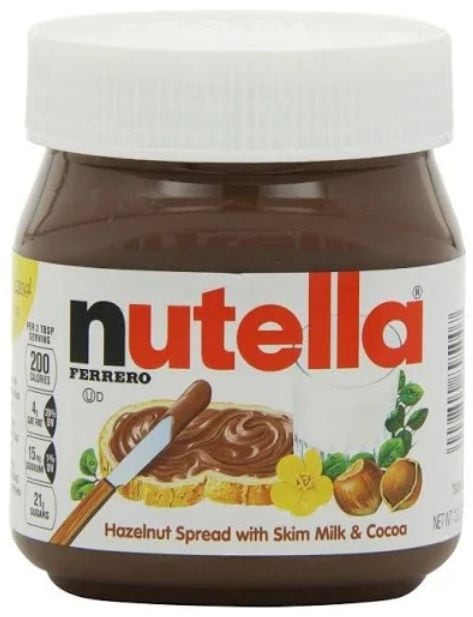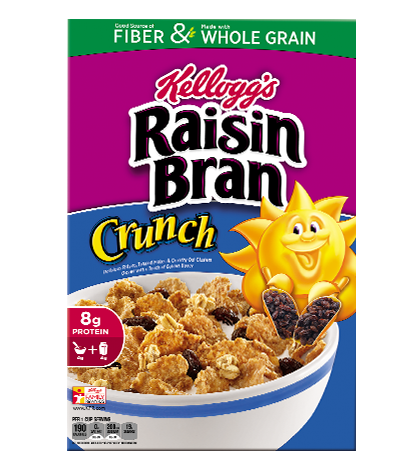In his second amended complaint,* plaintiff Stephen Hadley took issue with terms including ‘healthy,’ ‘nutritious,’ ‘wholesome,’ and ‘lightly sweetened’ on selected Kellogg’s cereals, which he argued implied they were low in sugar “when they actually are composed of 18% to 40% added sugar.”
Kellogg, meanwhile, had argued that Hadley did not meet the predominance standards for certification, and that most consumers did not see the challenged phrases; while “the health impact of consuming added sugar—and thus the alleged falsity of the challenged statements—differs for each consumer.”
In a 51-page order filed on August 17, 2018, however, Judge Lucy Koh begged to differ, and certified three classes of consumers in California exposed to ‘lightly sweetened’ claims on Frosted Mini-Wheats and Smart Start cereals and ‘heart healthy’ claims on Raisin Bran and Raisin Bran Crunch on or after August 29, 2012. (She denied Hadley’s bid to certify a class of consumers exposed to the ‘wholesome goodness’ claims on Nutrigrain bars.)
Attorney: 'Lightly sweetened' is not defined in law
So what do attorneys make of her decision, and does it have broader repercussions given the current scrutiny over added sugar?
Allan Zackler, attorney at law firm Wendel Rosen, Black & Dean, noted that Koh “specifically indicated that she was not ruling on the underlying merits of the claims; rather just on whether the claims were subject to class certification as pleaded in the second amended complaint.”
He added: “While… Kellogg may ultimately prevail on the merits if the case proceeds to judgment, this case is a good illustration of the risks of making any claim not specifically authorized by FDA regulations. The ‘lightly sweetened’ claim is not defined by FDA regulations. So, a legal advisor reviewing such a claim must determine whether it is false or misleading in any particular. What is meant by ‘lightly’ in the context of the amount of sugar added to the product?”
Case a 'good illustration of the risks of making claims not specifically authorized by FDA regulations'
He added: “Absent a settlement reached during mediation, Kellogg will have the opportunity to defend on the merits and might ultimately prevail.”
But he added: “I suspect that this case will be settled in advance of trial for an amount in excess of what the merits should warrant. It will likely encourage other class action plaintiffs’ attorneys to continue to file such claims in the hopes of getting a big pay day, however weak the claims may be. It behooves manufacturers to consider a more conservative approach in making claims which are not strongly supported.”

"This case is a sequel, 'Bride of Nutella.' In the Nutella litigation in the Southern District of California, the court certified a class of consumers based on complaints alleging that Nutella hazelnut spread was misleadingly promoted as healthy and beneficial when in fact it contained dangerous levels of sugar (and, unlike in this case, fat)...
"This litigation suggests that food companies could benefit from involving counsel who are intimately familiar with food labeling litigation at the inception of their decision-making on new label claims and advertising because it is a delicate dance to keep everything within the realms of FDA regulations, federal preemption, or puffery.
"Unless FDA rules that added sugar is healthful, makers of products with a significant percentage of calories derived from added sugar should carefully consider any health claims made for those products."
William Dance, Tucker Ellis LLP
'Consumers who purchase Frosted Mini-Wheats absolutely, positively know that the product contains added sugar'
Dale J. Giali, a partner at law firm Mayer Brown, told FoodNavigator-USA that the court had struck the vast majority of plaintiff’s original claims, adding: "Whether the added sugar was excessive and unhealthy is just one of many factual issues left for trial. To be sure, that any class was certified is unfortunate for consumers and food manufacturers alike. It rewards lawyer-driven theories of liability where actual deception or resulting injury is highly speculative, if not non-existent.
"For example, consumers who purchase Frosted Mini-Wheats absolutely, positively know that the product contains added sugar; indeed, they buy the product over the non-frosted variety for that precise reason. And, they know pretty well how much added sugar they are getting given that you can see it. Consumers also know that many people recommend that added sugar be consumed in moderation."
It rewards lawyer-driven theories of liability where actual deception or resulting injury is highly speculative
He added: "Because consumers have the information they need to make an informed purchasing decision – via, among other things, the ingredient list, the nutrition facts panel, prior experience with the product, and common sense – certifying a class in this case primarily serves to displace personal choice and responsibility, raise costs and uncertainty for food companies, and enrich consumer attorneys.
"As far as what this means going forward, food companies should be able to reduce this type of (mindless) litigation risk by re-doubling their efforts to refrain from positioning as better-for-you or healthy a food product with excess added sugar."
Kellogg told FoodNavigator-USA: "We don’t comment on ongoing litigation, but we can say Kellogg believes in transparency and ensuring consumers have access to the information they want and need to make decisions about what food to buy. We include all nutrition information on our labels."
*The case is Hadley v. Kellogg Sales Company, 5:16-cv-04955, filed in the northern district of California on August 29, 2016.

According to a complaint* filed on August 29, 2016:
- Kellogg's Raisin Bran: 18g sugar/serving, 37.9% calories from sugar
- Kellogg's Raisin Bran Crunch: 19g sugar/serving, 40% calories from sugar
- Kellogg's Frosted Mini-Wheats, blueberry: 12g sugar/serving, 25.3% calories from sugar
- Kellogg's Smart Start cereal: 18g sugar/serving, 30% calories from sugar
While there is no specific regulation that disqualifies firms from describing a product as ‘healthy,’ or ‘nutritious’ based on its sugar content, and there is no legal definition of ‘lightly sweetened,’ the plaintiffs argue that federal regulations enshrined in California state law require that labels are not “false or misleading."
Likewise, while the FDA does not define ‘high’ or ‘low’ sugar (it only sets conditions of use for ‘reduced/less/lower sugar’ claims), the plaintiffs claim that “anything that contributes significantly more than 5% of calories from sugar” is a ‘high-sugar’ food.

